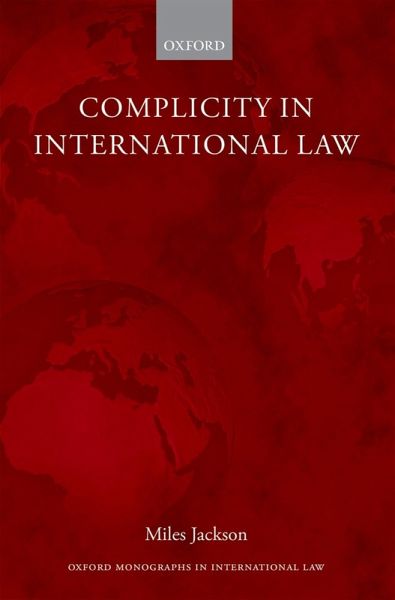
Complicity in International Law (eBook, ePUB)
Versandkostenfrei!
Sofort per Download lieferbar
38,95 €
inkl. MwSt.
Weitere Ausgaben:

PAYBACK Punkte
19 °P sammeln!
This book examines how international law prohibits state and individual complicity. Complicity is a derivative form of responsibility that links an accomplice to the wrongdoing of a principal actor. Whenever a legal system prohibits complicity, it must address certain questions as to the content and structure of the rules. To understand how international law answers these questions, this book proposes an analytical framework in which complicity rules may be assessed and defends a normative claim as to how they should be structured. Anchored by this framework and normative claim, this book show...
This book examines how international law prohibits state and individual complicity. Complicity is a derivative form of responsibility that links an accomplice to the wrongdoing of a principal actor. Whenever a legal system prohibits complicity, it must address certain questions as to the content and structure of the rules. To understand how international law answers these questions, this book proposes an analytical framework in which complicity rules may be assessed and defends a normative claim as to how they should be structured. Anchored by this framework and normative claim, this book shows that international criminal law regulates individual complicity in a comprehensive way, using the doctrines of instigation and aiding and abetting to inculpate complicit participants in international crimes. By contrast, international law's regulation of state complicity was historically marked by an absence of complicity rules. This is changing. In respect of state complicity in the wrongdoing of another state, international law now imposes both specific and general complicity obligations, the latter prohibiting states from aiding or assisting another state in the commission of any internationally wrongful act. In respect of the ways that states participate in harms caused by non-state actors, the traditional normative structure of international law, which imposed obligations only on states, foreclosed the possibility of prohibiting the state's participation as a form of complicity. As that traditional normative structure has evolved, so the possibility of holding states responsible for complicity in the wrongdoing of non-state actors has emerged. More and more, both the wrongs that international actors commit, and the wrongs they help or encourage others to commit, matter.
Dieser Download kann aus rechtlichen Gründen nur mit Rechnungsadresse in A, B, BG, CY, CZ, D, DK, EW, E, FIN, F, GR, HR, H, IRL, I, LT, L, LR, M, NL, PL, P, R, S, SLO, SK ausgeliefert werden.













